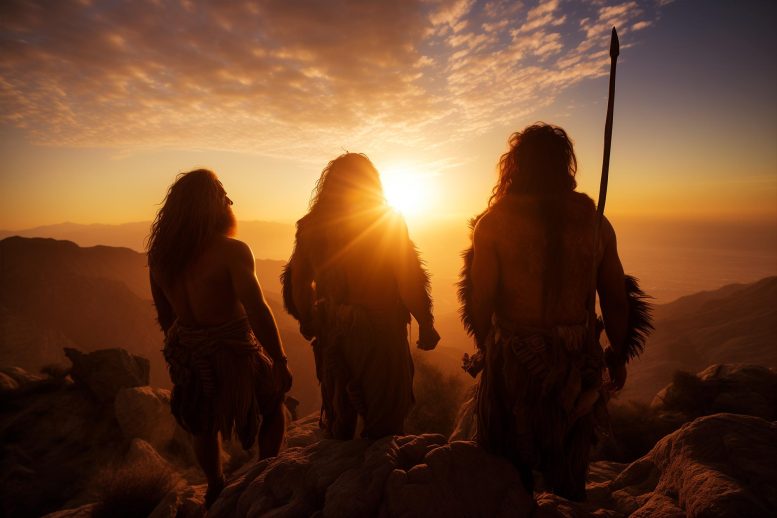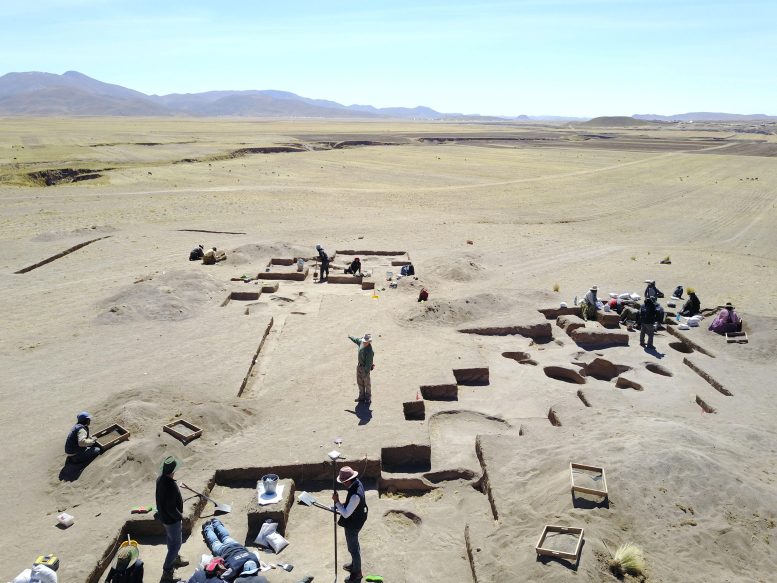
Posted on 02/17/2024 4:53:28 PM PST by Red Badger

Recent research challenges the traditional view of early human diets in the Andes, suggesting a shift from “hunter-gatherers” to “gatherer-hunters.” The study, analyzing remains from the Wilamaya Patjxa and Soro Mik’aya Patjxa sites in Peru, reveals an 80 percent plant-based and 20 percent meat diet among early Andeans. This finding, based on isotope chemistry and statistical modeling, contradicts previous beliefs and influences current perceptions of diets such as the Paleodiet. It also indicates a need to reassess archaeological frameworks globally.
~~~~~~~~~~~~~~~~~~~~~~~~~~~~~~~~~~~~~~~~~~~~~~~~~~~~~~~~~~~~~~~~~~~
The commonly used term “hunter-gatherers” for describing early humans should be revised to “gatherer-hunters” in the context of the Andes in South America, suggests groundbreaking new research led by an archaeologist from the University of Wyoming.
Archaeologists long thought that early human diets were meat-based. However, Assistant Professor Randy Haas’ analysis of the remains of 24 individuals from the Wilamaya Patjxa and Soro Mik’aya Patjxa burial sites in Peru shows that early human diets in the Andes Mountains were composed of 80 percent plant matter and 20 percent meat.
The study was recently published in the peer-reviewed journal PLOS ONE. It applies methods in isotope chemistry and statistical modeling to unveil a surprising twist in early Andean societies and traditional hunter-gatherer narratives.
“Conventional wisdom holds that early human economies focused on hunting — an idea that has led to a number of high-protein dietary fads such as the Paleodiet,” Haas says. “Our analysis shows that the diets were composed of 80 percent plant matter and 20 percent meat.”
Evidence of Plant-Dominant Diets
For these early humans of the Andes, spanning from 9,000 to 6,500 years ago, there is indeed evidence that hunting of large mammals provided some of their diets. But the new analysis of the isotopic composition of the human bones shows that plant foods made up the majority of individual diets, with meat playing a secondary role.

The Wilamaya Patjxa archeological site in Peru produced human remains showing that the diets of early people of the Andes were primarily composed of plant materials. Credit: Randy Haas
~~~~~~~~~~~~~~~~~~~~~~~~~~~~~~~~~~~~~~~~~~~~~~~~~~~~~~~~~~~~~~~~
Additionally, burnt plant remains from the sites and distinct dental-wear patterns on the individuals’ upper incisors indicate that tubers — or plants that grow underground, such as potatoes — likely were the most prominent subsistence resource.
Multidisciplinary Research and Student Involvement
“Our combination of isotope chemistry, paleoethnobotanical, and zooarchaeological methods offers the clearest and most accurate picture of early Andean diets to date,” Haas says. “These findings update our understanding of earliest forager economies and the pathway to agricultural economies in the Andean highlands.”
Joining Haas in the study were researchers from Penn State University, the University of California-Merced, the University of California-Davis, Binghamton University, the University of Arizona, and the National Register of Peruvian Archaeologists.
Undergraduate students also had the opportunity to conduct research during the initial 2018 excavations at the Wilamaya Patjxa burial site.
Currently a Ph.D. student in anthropology at Penn State University, Jennifer Chen, the journal article’s lead author and a former undergraduate student in Haas’ research lab, performed the isotope lab work and much of the isotope analysis following the excavations.
“Food is incredibly important and crucial for survival, especially in high-altitude environments like the Andes,” Chen says. “A lot of archaeological frameworks on hunter-gatherers, or foragers, center on hunting and meat-heavy diets — but we are finding that early hunter-gatherers in the Andes were mostly eating plant foods like wild tubers.”
Haas notes that archaeologists now have the tools to understand early human diets, and their results are not what they anticipated. This case study demonstrates for the first time that early human economies, in at least one part of the world, were plant-based.
“Given that archaeological biases have long misled archaeologists — myself included — in the Andes, it is likely that future isotopic research in other parts of the world will similarly show that archaeologists have also gotten it wrong elsewhere,” he says.
Haas investigates human behavior in forager societies of the past to better understand human behavior in the present. He leads archaeological excavations and survey projects in the Andes and mountain regions of western North America.
Reference:
“Stable isotope chemistry reveals plant-dominant diet among early foragers on the Andean Altiplano, 9.0–6.5 cal. ka” by Jennifer C. Chen, Mark S. Aldenderfer, Jelmer W. Eerkens, BrieAnna S. Langlie, Carlos Viviano Llave, James T. Watson and Randall Haas, 24 January 2024, PLOS ONE.
DOI: 10.1371/journal.pone.0296420
But then we soon discovered steak.
I hope they discovered fire first...................
BBC were pushing this about a month ago. all part of the no meat for you, but meat for the elite.
BBC said even coastal populations didn’t eat seafood.
they’ll say anything.
Eat the bugs and be quiet, peasant!
The problem isn’t solved by adding a tomato. The amino acids found in spinach means our body won’t use more than 55-60% of the protein in it. I’m not sure what the problem is with iron, but it is common for plants to have stuff that looks good on paper but simply isn’t very useful for our body.
got to keep the narrative going....
CONCLUSION:
Plants were easier to CATCH !!!!!
We have brains which use a lot of energy. Do we need them to eat plants?
We have shoulders that enable us to throw spears. Did we throw them at pkants?
Disclaimer: Opinions posted on Free Republic are those of the individual posters and do not necessarily represent the opinion of Free Republic or its management. All materials posted herein are protected by copyright law and the exemption for fair use of copyrighted works.